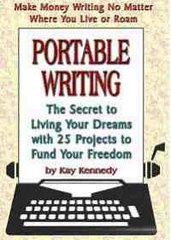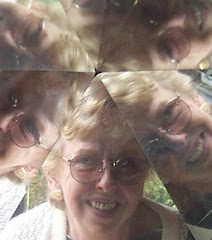Why your book should be offered as an e-book
A lot of people ask me, why would anyone buy an e-book (or ebook)? Of course, most of those who ask have plenty of storage space for books. Or, they simply like the idea of holding a book in their hands and flipping through the pages. For those of you unfamiliar with the term e-book, it simply means an electronic copy of a book.
I’ll admit that I’m fond of old-fashioned reading, but as an RVer who likes to have plenty of reading material with me when I travel, I can’t carry that many books. So the ones that I read, then don’t care to read again, I leave at RV parks, usually in the laundry room, for the next reader. I’ve also picked up some of the best books I’ve read there—you know the out-of-print titles that you can’t find at bookstores anymore, and they’ve been removed from library shelves. There were several years during my adult life where I simply didn’t have time to read, and now I’m trying to catch up on some of the good books I missed.
Electronic books are quickly gaining favor as the new way to purchase and read books. Once you find what you like at an online bookstore, you can download it immediately, usually for a lower price than a bound copy, and there’s no wait for the book to arrive in the mail and no shipping fees.
This is perfect for RVers, who can download e-books to the computer and read them on screen, or they can be downloaded onto electronic readers and carried to read while waiting in the doctor’s office or for car repairs, etc. These little readers are still quite expensive, but they usually hold multiple books. And prices will surely come down as more and more buyers seek them out. Think of the space they will save—six books in an electronic gizmo smaller than a paperback.
E-books can also be saved on a CD, which stores in way less space than a book, and you can squeeze several e-books onto each shiny disk.
E-books seem to have found a place in today’s society, but I still enjoying having hard copies of anything I’m going to read over and over because I like to highlight special passages. I suppose I could do the same on a computer copy of a book, but there’s just something about being able to manually flip to a page and read it again.
POD publishers like Booklocker have found, after several years of offering books this way, that more non-fiction books sell as e-books. And I’ve found it’s true for my books. Portable Writing has sold many more copies as e-books than as hard copies. It remains to be seen which way will win the most sales of Looking Back. So far, it has sold more as hard copies, but I suspect that a lot of buyers have been shopping for gifts for their friends and family. One buyer even wrote to tell me she bought 12 copies for Christmas gifts. Fiction books still sell better in hard copy for some reason.
And what's to keep your work from being stolen off the Internet? There’s always the chance that someone will purchase and download a copy of a book, then illegally copy and distribute it themselves. That violates copyright laws, and violators almost always get caught since it is so easy to type in a book title and search the Web, where you’ll discover all the places that your book is offered—legal or not.
For those who are thinking about getting their first book published, e-books can be self-published very easily. Just format yours as a PDF file and offer it for sale on your own Web site or blog. If you want to write a family memoir, this may be the perfect way to distribute it since there are no printing or mailing costs involved. E-books are definitely here to stay.
Wednesday, April 30, 2008
Subscribe to:
Post Comments (Atom)


No comments:
Post a Comment